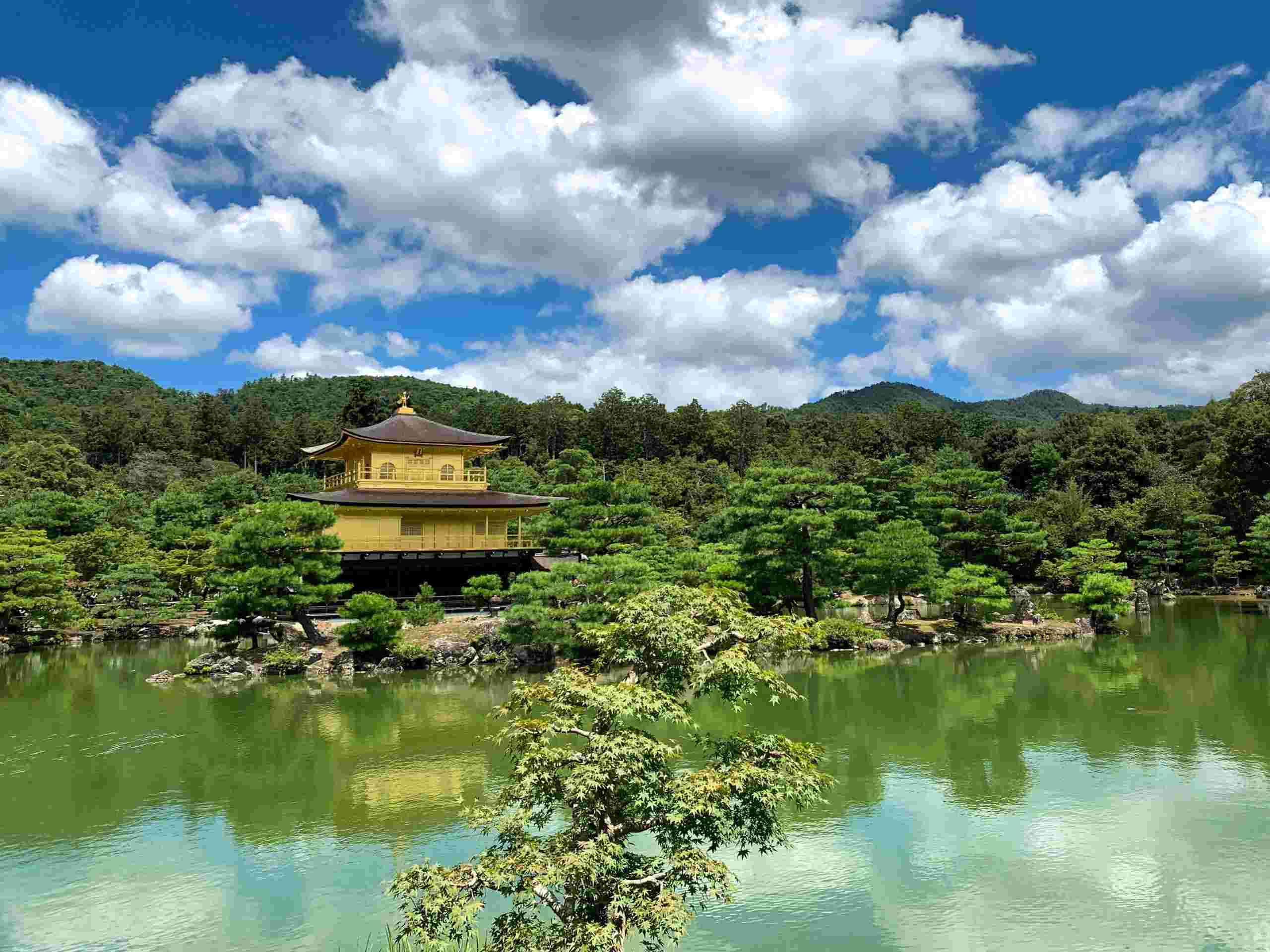
Empire of Japan stands as a monumental chapter in world history, marked by its rapid modernization and expansion from the late 19th century until the mid-20th century. This period was characterized by significant cultural, political, and military transformations that not only shaped Japan but also left a lasting impact on global dynamics. Understanding this era requires delving into a myriad of fascinating facts, from its emergence as a formidable imperial power to its role in international conflicts and eventual transition post-World War II. In this blog post, we'll uncover 40 intriguing facts about the Empire of Japan, offering insights into its complex history, influential figures, and pivotal events that defined its legacy. Join us as we journey through time, shedding light on the remarkable story of a nation that navigated the challenges of modernity and imperialism, leaving an indelible mark on the tapestry of world history.
The Rise of the Empire of Japan
The Empire of Japan, a significant player in world history, saw rapid modernization and expansion. Here are some intriguing facts about its rise.
- Meiji Restoration: The Meiji Restoration in 1868 marked the end of the Tokugawa shogunate and the beginning of Japan's modernization.
- Emperor Meiji: Emperor Meiji, who reigned from 1867 to 1912, played a crucial role in transforming Japan into a modern state.
- Industrialization: Japan's industrial revolution began in the late 19th century, with rapid advancements in technology and infrastructure.
- Constitution of 1889: The Meiji Constitution, enacted in 1889, established a form of constitutional monarchy in Japan.
- First Sino-Japanese War: The First Sino-Japanese War (1894-1895) resulted in Japan's victory over China, marking its emergence as a regional power.
Expansion and Military Might
Japan's expansionist policies and military prowess were key aspects of its empire. These facts highlight its military and territorial ambitions.
- Russo-Japanese War: The Russo-Japanese War (1904-1905) ended in a surprising victory for Japan, establishing it as a formidable military power.
- Annexation of Korea: In 1910, Japan formally annexed Korea, making it a part of the Japanese Empire.
- World War I: During World War I, Japan sided with the Allies and seized German territories in the Pacific and China.
- Manchurian Incident: The Manchurian Incident in 1931 led to Japan's occupation of Manchuria and the establishment of the puppet state of Manchukuo.
- Second Sino-Japanese War: The Second Sino-Japanese War (1937-1945) saw brutal conflict between Japan and China, with significant territorial gains for Japan.
Society and Culture
Japanese society and culture underwent significant changes during the empire's existence. These facts shed light on those transformations.
- Western Influence: Western influence during the Meiji era led to the adoption of Western clothing, education, and technology.
- Zaibatsu: Powerful family-owned business conglomerates, known as zaibatsu, played a major role in Japan's economy.
- Education Reforms: Education reforms during the Meiji era emphasized science, technology, and Western knowledge.
- Shinto Revival: The Meiji government promoted Shinto as the state religion to foster national unity and loyalty to the emperor.
- Cultural Exports: Japanese art, literature, and cinema began to gain international recognition during the early 20th century.
World War II and Its Aftermath
World War II was a pivotal period for the Empire of Japan, leading to its eventual downfall. These facts explore its role in the war and the consequences.
- Pearl Harbor: On December 7, 1941, Japan launched a surprise attack on Pearl Harbor, bringing the United States into World War II.
- Axis Powers: Japan was part of the Axis Powers, allied with Germany and Italy during World War II.
- Pacific Theater: Japan's military campaigns in the Pacific Theater included battles in the Philippines, Indonesia, and the Solomon Islands.
- Atomic Bombings: The atomic bombings of Hiroshima and Nagasaki in August 1945 led to Japan's surrender and the end of World War II.
- Occupation of Japan: After the war, Japan was occupied by Allied forces, led by the United States, until 1952.
Economic and Technological Advancements
Despite its military focus, the Empire of Japan made significant strides in economic and technological fields. These facts highlight those achievements.
- Railway Network: Japan developed an extensive railway network, including the famous Shinkansen (bullet train) system.
- Shipbuilding: Japan became a leading shipbuilding nation, producing advanced warships and commercial vessels.
- Electronics: Early advancements in electronics laid the groundwork for Japan's post-war dominance in the industry.
- Automobile Industry: The foundations of Japan's automobile industry were established during the empire, leading to brands like Toyota and Nissan.
- Agricultural Reforms: Agricultural reforms improved productivity and supported Japan's growing population.
Political and Diplomatic Relations
Japan's political and diplomatic maneuvers were crucial in shaping its empire. These facts delve into its international relations.
- Treaty of Portsmouth: The Treaty of Portsmouth, mediated by the United States, ended the Russo-Japanese War and recognized Japan's interests in Korea and Manchuria.
- League of Nations: Japan was a founding member of the League of Nations but withdrew in 1933 after the League condemned its actions in Manchuria.
- Tripartite Pact: In 1940, Japan signed the Tripartite Pact with Germany and Italy, solidifying the Axis alliance.
- Greater East Asia Co-Prosperity Sphere: Japan promoted the concept of the Greater East Asia Co-Prosperity Sphere, aiming to create a self-sufficient bloc of Asian nations led by Japan.
- Diplomatic Isolation: Japan's aggressive expansionism led to diplomatic isolation and increasing tensions with Western powers.
Legacy and Historical Impact
The legacy of the Empire of Japan continues to influence modern Japan and the world. These facts explore its lasting impact.
- War Crimes Trials: After World War II, Japanese leaders were tried for war crimes in the Tokyo Trials.
- Constitution of 1947: The post-war Constitution of Japan, enacted in 1947, established a parliamentary democracy and renounced war.
- Economic Miracle: Japan's post-war economic recovery, known as the "Japanese Economic Miracle," transformed it into a global economic powerhouse.
- Cultural Renaissance: Post-war Japan experienced a cultural renaissance, with advancements in arts, literature, and technology.
- Peaceful Nation: Modern Japan is known for its pacifist stance and commitment to international peace and cooperation.
Notable Figures and Leaders
Key figures and leaders played pivotal roles in shaping the Empire of Japan. These facts highlight some of the most influential individuals.
- Emperor Hirohito: Emperor Hirohito, who reigned from 1926 to 1989, was a central figure during World War II and Japan's post-war recovery.
- General Hideki Tojo: General Hideki Tojo served as Prime Minister during World War II and was a key architect of Japan's military strategy.
- Admiral Isoroku Yamamoto: Admiral Isoroku Yamamoto, the mastermind behind the Pearl Harbor attack, was a prominent naval strategist.
- Prince Saionji Kinmochi: Prince Saionji Kinmochi, a statesman and diplomat, played a significant role in Japan's early 20th-century politics.
- Yukichi Fukuzawa: Yukichi Fukuzawa, a prominent intellectual and educator, advocated for modernization and Westernization during the Meiji era.
A Glimpse into the Empire of Japan
We've journeyed through the intricate tapestry of the Empire of Japan, uncovering 40 fascinating facts that shed light on its rich history, culture, and impact on the world. From its ancient origins to its role in global conflicts, this empire's story is a testament to the resilience and complexity of human societies. Understanding these facts not only enriches our knowledge of the past but also offers valuable lessons for the future. As we reflect on the Empire of Japan's contributions to art, technology, and international relations, let's appreciate the diverse narratives that have shaped our world. This exploration into the Empire of Japan's legacy reminds us of the importance of looking beyond the surface to grasp the profound depths of history.
Was this page helpful?
Our commitment to delivering trustworthy and engaging content is at the heart of what we do. Each fact on our site is contributed by real users like you, bringing a wealth of diverse insights and information. To ensure the highest standards of accuracy and reliability, our dedicated editors meticulously review each submission. This process guarantees that the facts we share are not only fascinating but also credible. Trust in our commitment to quality and authenticity as you explore and learn with us.


